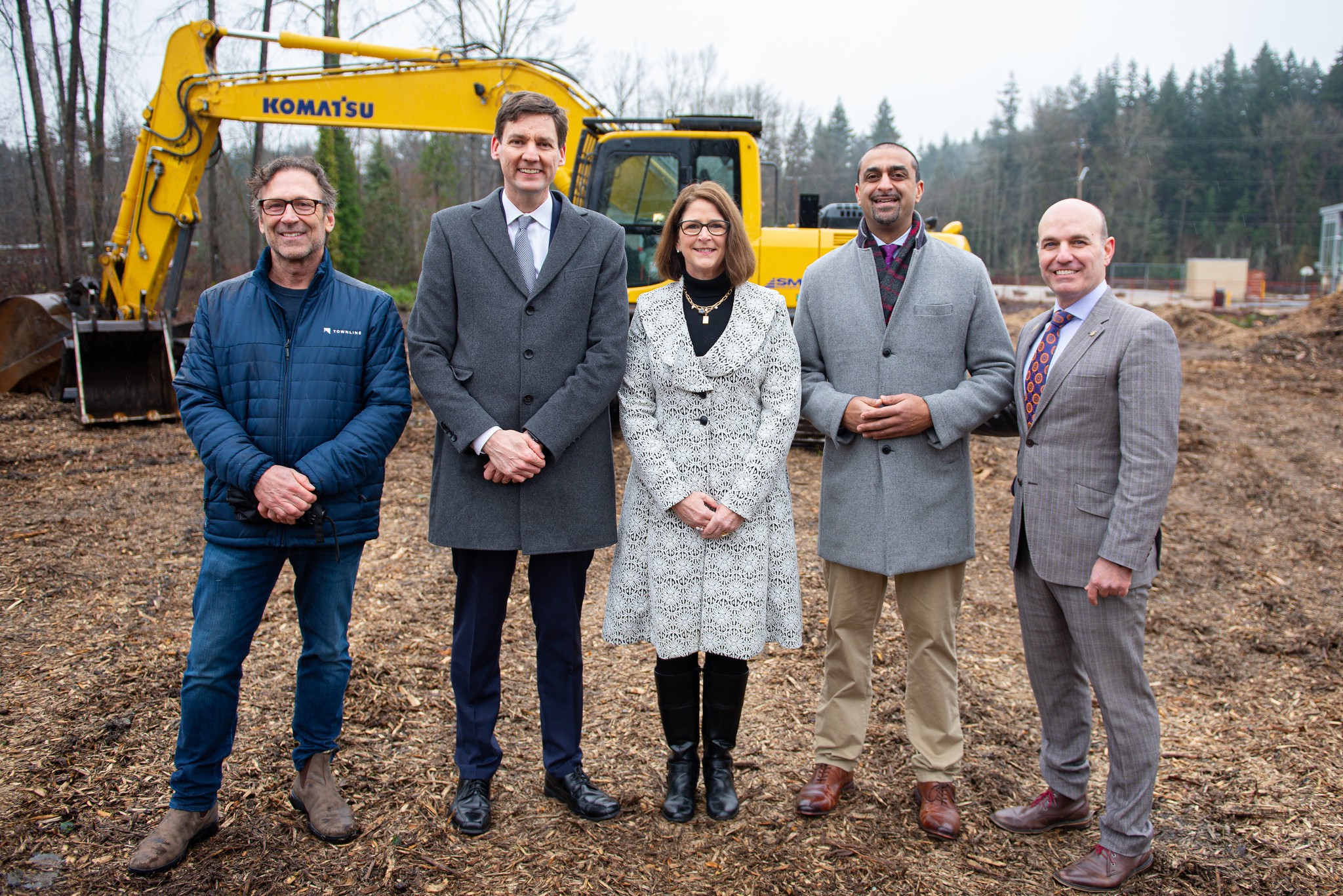B.C. announces new approach to increase home development
The province is looking streamline its permit approval process

B.C. Premier David Eby announces a new strategy to speed housing development. – Province of B.C.
Key Takeaways:
- B.C. is implementing a single application window to eliminate the need for multiple applications across ministries.
- Decisions will be expedited by a dedicated cross-ministry team.
- The strategy will prioritize Indigenous-led projects, BC Housing applications and multiple-unit applications
The Whole Story:
B.C. announced it is creating a “one-stop-shop” approach to provincial permitting to help speed up approvals and construction to build more homes.
“Every British Columbian deserves a safe and affordable place to call home. Unfortunately, this simply wasn’t a priority for more than a decade,” said Premier David Eby. “As we turn things around and start to build record levels of housing, we are taking action today to remove obstacles to constructing new homes that families desperately need.”
New strategy to streamline approvals
Currently, authorizations related to homebuilding in B.C. can require multiple provincial permit applications spanning different ministries with different processes. This includes permits related to riparian area approvals, water licences, transportation approvals, road rezonings, contaminated sites, and requirements for heritage inspections.
Officials say the province’s new strategy will streamline the process and create a single, co-ordinated approach to housing-related permits and authorization. They anticipate it will speed up the process and eliminate the need for multiple applications across ministries. While the single application window is being established over the coming months, permit and authorization decisions will be expedited through a cross-ministry team focused solely on processing housing permits. The Housing Action Task Force includes decision-makers, information technology systems, project managers and policy support teams working together to speed up processing.
Prioritizing developments
A co-ordinated provincial approach is also expected to make application reviews more streamlined for First Nations, which are consulted on each provincial authorization.
“Having dedicated resources and a cross-ministry team prioritizing housing permits means we can make significantly more progress on getting British Columbians the housing they need,” said Nathan Cullen, minister of water, land and resource stewardship. “Establishing a single-application approach is an investment that will deliver more housing for people faster, and this will also result in immediate and future benefits for the entire natural resources sector.”
To start the strategy, the province is creating 42 new full-time positions. It will prioritize the housing that most urgently needs to be built, such as Indigenous-led projects, BC Housing applications and multiple-unit applications. Priority will also be given to authorizations and permit approvals for housing projects in municipalities that are subject to the speculation and vacancy tax, because they have the greatest housing shortages, lowest vacancy rates and most demand for housing.
“Housing is a top priority for British Columbians and our government,” said Ravi Kahlon, minister of housing. “We are working with municipalities to get more housing built faster. At the same time, we recognize that as a Province we have work to do to speed up our approvals. This new permitting approach is an important step in providing the homes people need.”
Where B.C. ranks with red tape
The announcement comes just after a report was released by the the Canadian Home Builders’ Association (CHBA) which ranked municipalities based on the difficulty and cost of their development process.
On a list of 21 municipalities the report investigated, Vancouver ranked 12th, Surrey 13th and Burnaby was 17th.
The average time for a planning application to reach the approval stage in Vancouver was approximately 15 months, a moderate increase from the 13 months in the 2020 Study.
Despite this, the study noted that Vancouver has numerous good features enabled including a development guide showing required studies, requirement to review municipal plans on a regular basis and others. Vancouver is also one of the few municipalities to incorporate the ability for public comments to be submitted through their development application tracker.
The Surrey has average approval timelines at 13.8 months, just below the study-wide average of 13.9 months. The study praised the city for its robust electronic submission and payment capabilities, but noted its charges have increased substantially.
Despite making significant improvements since the last study, planning applications still take 20.9 months on average in Burnaby. This is the fourth highest approval timeline amongst the studied municipalities. The study noted that permits still must be physically mailed in and the city does not provide information on the status of applications, their location or historical data.

